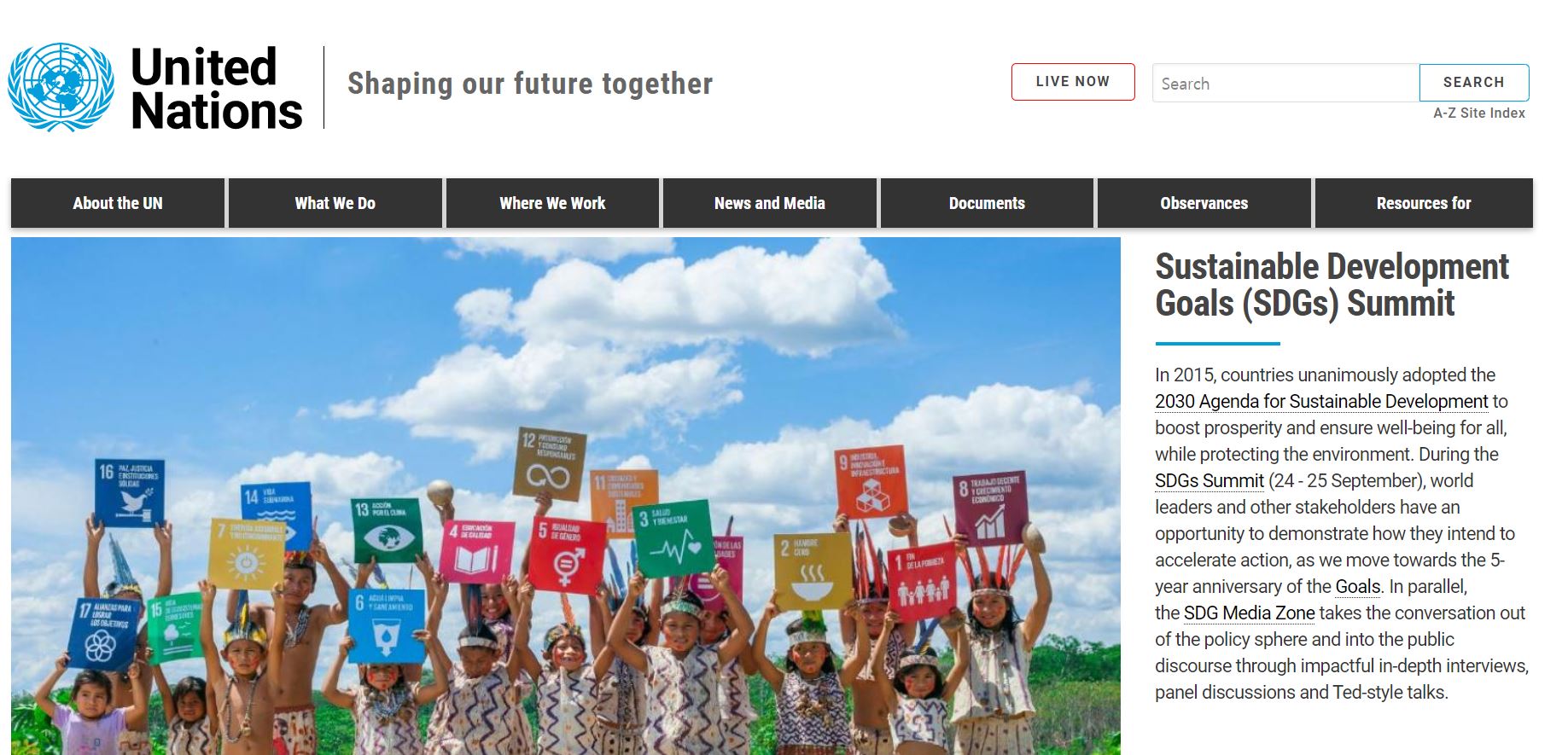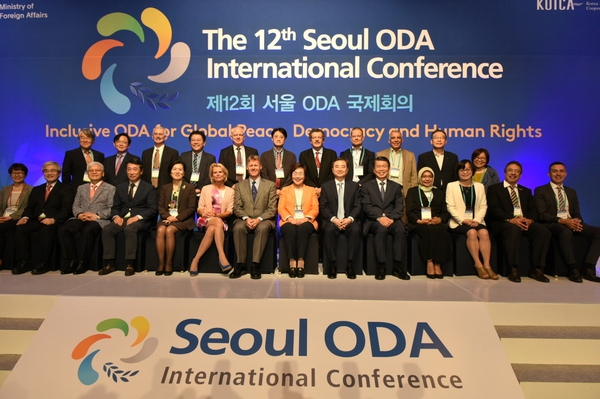List
Story > NEWS > Detail
[News] Sustainable Development and Transition City
The Sustainable Development Goals (SDGs) adopted at the U.N. Development Summit in September 2015 are a follow-up to the Millennium Development Goals (MDGs), which began in January 2016 as a common task worldwide for sustainable development of the global economy, society and the environment from 2016 to 2030. As the importance of active implementation of SDGs emerged at the start of the SDGs, the UN required each country to submit a voluntary national review every four years to the High-Level Political Forum organized by the UN Economic and Social Council. In addition, the U.N. advisory body Sustainable Development Solutions Network, in collaboration with the German Betelsmann Foundation, publishes the SDG Index & Dashboard's Report, which includes an assessment of the initial implementation of SDGs by each country each year. For the past three years, the Korean government, private organizations and local governments have made efforts to prepare implementation systems to achieve SDGs. South Korea submitted the VNR to the HLPF in 2016 for checks on SDGs implementation, while the SDG Index ranking for the country's initial implementation of SDGs was 27th among 149 countries in 2016 and 31st among 157 countries in 2017. From this, it seems that Korea's implementation of SDGs is still at its starting point.

The Sustainable Development Goals (SDGs) are about the vision of a "Leave No One Beyond" (SDGs) that developed and developing countries will work together from 2016 to 2030 to address the universal problems of mankind (dep빈, dry river, education, women, children, refugees, conflict) and global environmental issues (variety, biodiversity, biodiversity and environmental issues). In addition, the U.N. has announced the 2030 Agenda for Sustainable Development of Specific SDGs, which provides a common blueprint for peace and prosperity for the present and future and addresses more comprehensive goals than the MDGs' eight. In addition, what is new to SDGs compared to MDGs is expanded participation as well as the goal of the expanded number. The eight MDGs were primarily aimed at ending all forms of extreme poverty in developing countries, but the SDGs clearly broadened the concept of participation to be achievable with the participation of all countries.

Since SDGs are the goals of all countries and should be addressed together, implementing them is a commitment to the international community and a prerequisite for sustainable development. As stated in the 2030 Agenda for Sustainable Development, SDGs are "our strong commitment to complete implementation" and cannot achieve goals without the ambitious means of implementation of member states. As the 2030 Agenda emphasized the importance of implementing SDGs, it emphasized the importance of implementing SDGs by member countries, including establishing SDG 17 (enhancing the means of implementation and promoting global partnerships for sustainable development) with the aim of implementing the countries. However, policymakers in some OECD countries view the ambitious implementation of SDGs achievement as simply providing a higher level of ODA (Official Development Aid) for developed countries).

But SDGs do not just require rich countries to increase development funds for other countries. Jeffrey Sachs, who served as special adviser to former UN Secretary-General Ban Ki-moon for MDGs, stressed that the MDGs' "failure of an operating system that brings together many stakeholders from developing and developed countries, and that the key determinants for achieving SDGs are participation by everyone, including not just governments but also private organizations, and "the quality of governance at all levels" from local to global governments. Thus, achieving SDGs requires fundamental policy changes in Member States and the emergence of governance that reflects SDGs. Accordingly, UN member states promised to participate in systematic follow-up and monitoring of the implementation of the 2030 Agenda over the next 15 years, and the UN said that the report and monitoring framework on the voluntary, participatory and transparent implementation of the member states will make an important contribution to SDGs achievement.
The Sustainable Development Goals (SDGs) adopted at the U.N. Development Summit in September 2015 are a follow-up to the Millennium Development Goals (MDGs), which began in January 2016 as a common task worldwide for sustainable development of the global economy, society and the environment from 2016 to 2030. As the importance of active implementation of SDGs emerged at the start of the SDGs, the UN required each country to submit a voluntary national review every four years to the High-Level Political Forum organized by the UN Economic and Social Council. In addition, the U.N. advisory body Sustainable Development Solutions Network, in collaboration with the German Betelsmann Foundation, publishes the SDG Index & Dashboard's Report, which includes an assessment of the initial implementation of SDGs by each country each year. For the past three years, the Korean government, private organizations and local governments have made efforts to prepare implementation systems to achieve SDGs. South Korea submitted the VNR to the HLPF in 2016 for checks on SDGs implementation, while the SDG Index ranking for the country's initial implementation of SDGs was 27th among 149 countries in 2016 and 31st among 157 countries in 2017. From this, it seems that Korea's implementation of SDGs is still at its starting point.

The Sustainable Development Goals (SDGs) are about the vision of a "Leave No One Beyond" (SDGs) that developed and developing countries will work together from 2016 to 2030 to address the universal problems of mankind (dep빈, dry river, education, women, children, refugees, conflict) and global environmental issues (variety, biodiversity, biodiversity and environmental issues). In addition, the U.N. has announced the 2030 Agenda for Sustainable Development of Specific SDGs, which provides a common blueprint for peace and prosperity for the present and future and addresses more comprehensive goals than the MDGs' eight. In addition, what is new to SDGs compared to MDGs is expanded participation as well as the goal of the expanded number. The eight MDGs were primarily aimed at ending all forms of extreme poverty in developing countries, but the SDGs clearly broadened the concept of participation to be achievable with the participation of all countries.

Since SDGs are the goals of all countries and should be addressed together, implementing them is a commitment to the international community and a prerequisite for sustainable development. As stated in the 2030 Agenda for Sustainable Development, SDGs are "our strong commitment to complete implementation" and cannot achieve goals without the ambitious means of implementation of member states. As the 2030 Agenda emphasized the importance of implementing SDGs, it emphasized the importance of implementing SDGs by member countries, including establishing SDG 17 (enhancing the means of implementation and promoting global partnerships for sustainable development) with the aim of implementing the countries. However, policymakers in some OECD countries view the ambitious implementation of SDGs achievement as simply providing a higher level of ODA (Official Development Aid) for developed countries).

But SDGs do not just require rich countries to increase development funds for other countries. Jeffrey Sachs, who served as special adviser to former UN Secretary-General Ban Ki-moon for MDGs, stressed that the MDGs' "failure of an operating system that brings together many stakeholders from developing and developed countries, and that the key determinants for achieving SDGs are participation by everyone, including not just governments but also private organizations, and "the quality of governance at all levels" from local to global governments. Thus, achieving SDGs requires fundamental policy changes in Member States and the emergence of governance that reflects SDGs. Accordingly, UN member states promised to participate in systematic follow-up and monitoring of the implementation of the 2030 Agenda over the next 15 years, and the UN said that the report and monitoring framework on the voluntary, participatory and transparent implementation of the member states will make an important contribution to SDGs achievement.



